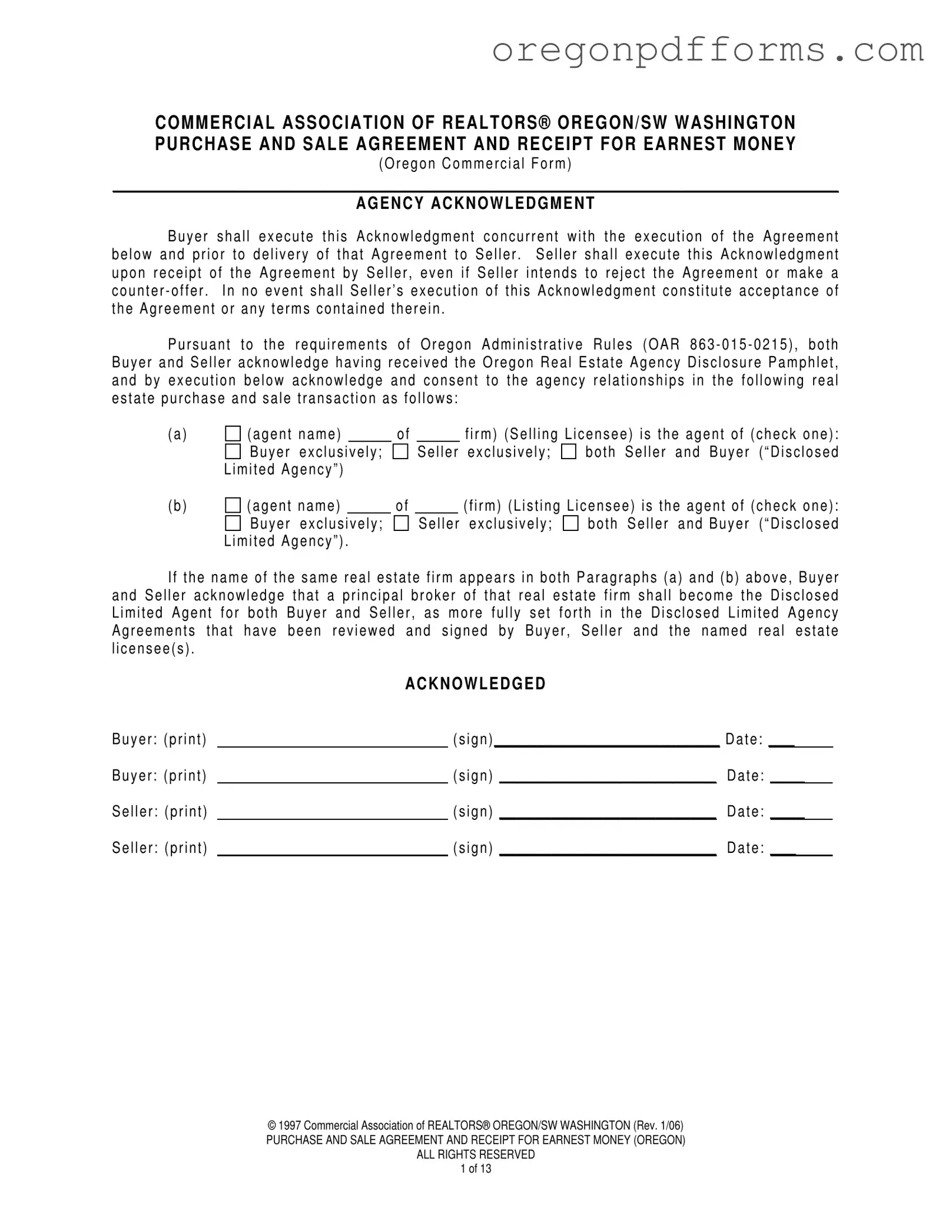Free Money Agreement Oregon Form
The Money Agreement Oregon form is a crucial document in real estate transactions in Oregon. It outlines the terms of the purchase and sale agreement, along with the receipt for earnest money. This form helps both buyers and sellers establish clear expectations and responsibilities during the property buying process.
Open My Money Agreement Oregon

Free Money Agreement Oregon Form
Open My Money Agreement Oregon

Open My Money Agreement Oregon
or
Get PDF
A few steps left to finish this form
Complete Money Agreement Oregon online with easy edits and saving.